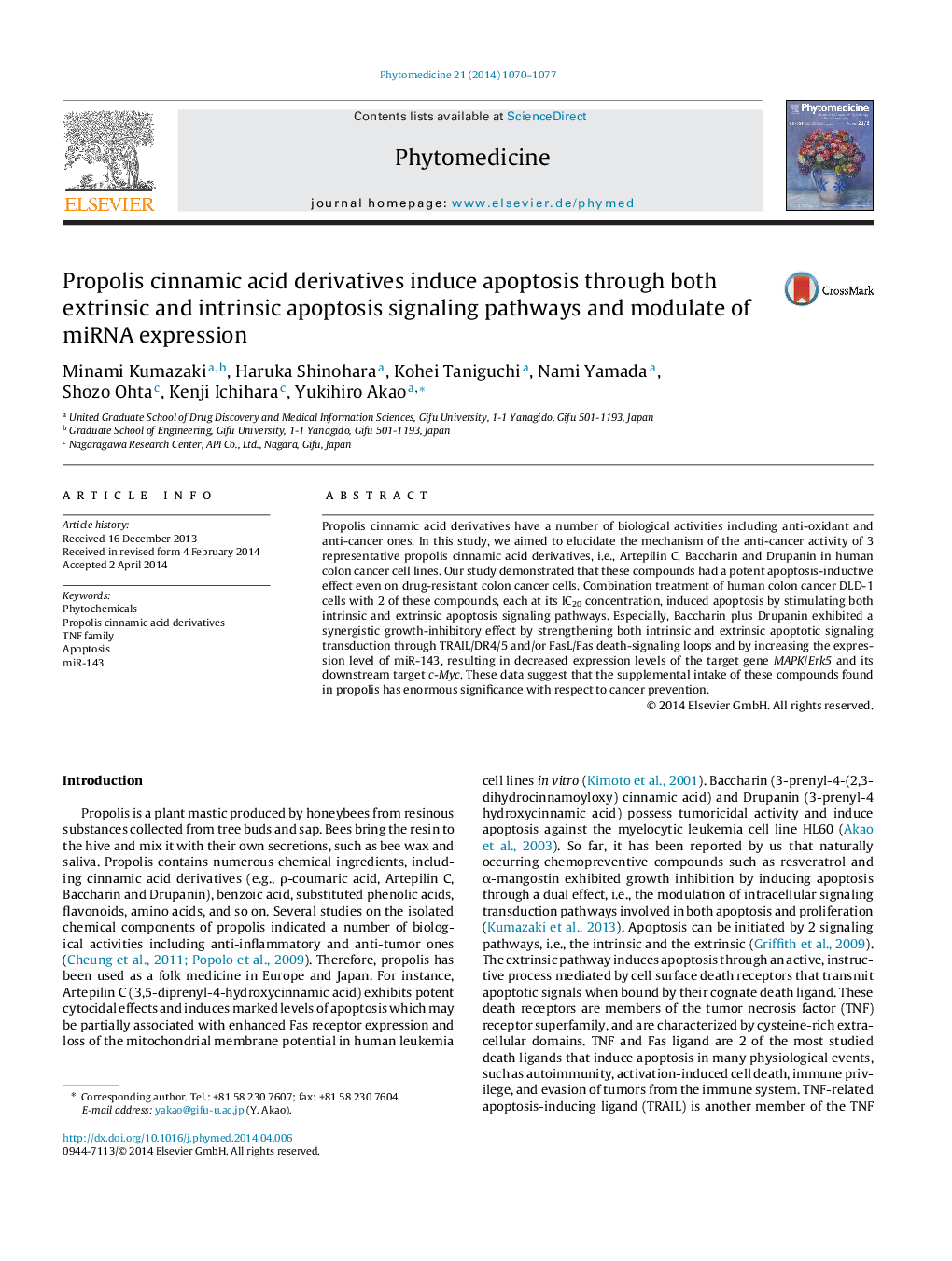| Article ID | Journal | Published Year | Pages | File Type |
|---|---|---|---|---|
| 5816390 | Phytomedicine | 2014 | 8 Pages |
Abstract
Propolis cinnamic acid derivatives have a number of biological activities including anti-oxidant and anti-cancer ones. In this study, we aimed to elucidate the mechanism of the anti-cancer activity of 3 representative propolis cinnamic acid derivatives, i.e., Artepilin C, Baccharin and Drupanin in human colon cancer cell lines. Our study demonstrated that these compounds had a potent apoptosis-inductive effect even on drug-resistant colon cancer cells. Combination treatment of human colon cancer DLD-1 cells with 2 of these compounds, each at its IC20 concentration, induced apoptosis by stimulating both intrinsic and extrinsic apoptosis signaling pathways. Especially, Baccharin plus Drupanin exhibited a synergistic growth-inhibitory effect by strengthening both intrinsic and extrinsic apoptotic signaling transduction through TRAIL/DR4/5 and/or FasL/Fas death-signaling loops and by increasing the expression level of miR-143, resulting in decreased expression levels of the target gene MAPK/Erk5 and its downstream target c-Myc. These data suggest that the supplemental intake of these compounds found in propolis has enormous significance with respect to cancer prevention.
Related Topics
Life Sciences
Biochemistry, Genetics and Molecular Biology
Clinical Biochemistry
Authors
Minami Kumazaki, Haruka Shinohara, Kohei Taniguchi, Nami Yamada, Shozo Ohta, Kenji Ichihara, Yukihiro Akao,
